
Raising a toast to Last Of The Summer Wine
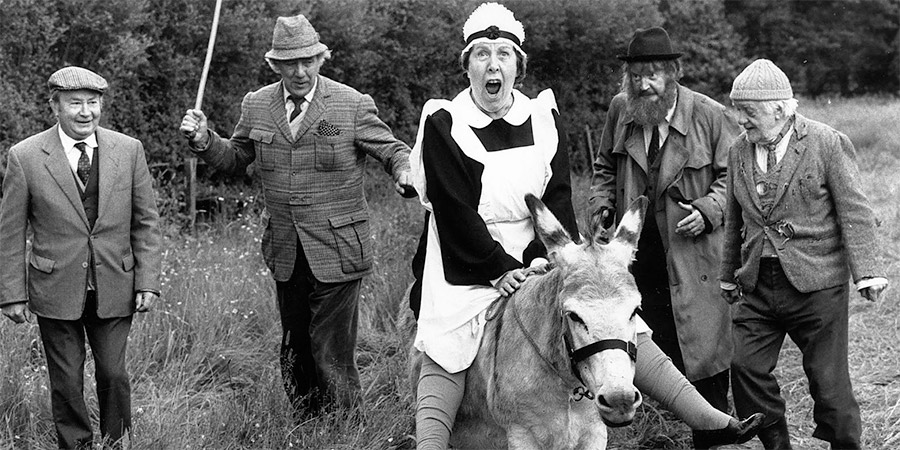
The colour of Summer's gone,
Of golden days, when I was young,
Of girls who came, but soon moved on,
Is in my Summer Wine.
Thus cantillated The Mike Sammes Singers over the opening titles of Last Of The Summer Wine's feature-length 1983 Christmas Special, Getting Sam Home. The show's haunting theme had been sung briefly before, by the Holmfirth Choral Society at the end of 1981's Whoops, and would be sung again - on festive outings, or to mark key events - although the lyrics would change, sometimes completely. The series had begun over a decade earlier, when the pilot, Of Funerals and Fish, aired on the 4th January 1973. It would continue, with numerous cast and production changes, but always the same writer, Roy Clarke - and always Peter Sallis, playing quiet, contemplative former Co-op Lino salesman Norman Clegg - until 2010.
But what was the secret of Last Of The Summer Wine? How, and why, did this gentle sitcom, about 3 senior citizens recapturing their boyhood in the lush, sun-kissed Yorkshire Dales, grow from a grimy and surprisingly downbeat pilot into a widely recognised - and widely loved, though there were always plenty of critics, too - cultural institution? Some of it was simple luck. The BBC could never find anything to replace it. Some of it was keen judgment - this is a show with a fine cast. And some of it was magic: that magic which sometimes strikes but all too often doesn't, the first crackle of which must be found in the scripts.
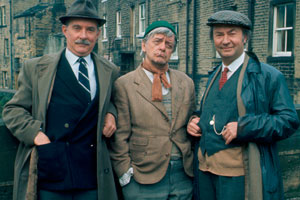
Droll, taciturn, ex-Policeman Roy Clarke (who would later use his time in the force as the basis for Rosie, a charming though largely-forgotten sitcom, starring Paul Greenwood as maladroit, henpecked young PC 'Rosie' Penrose) was only in his early forties when the BBC's Duncan Wood asked him if he'd like to write a sitcom "about old men". At first, he wasn't keen. "For a long time, I struggled with this idea, to try and get some enthusiasm about it, and I had none, I had none at all, really," explained Clarke. Then, as he paced and pondered, inspiration struck: "Almost at the point of turning it down, it occurred to me that, if they, if these three old men, were totally free - they had no responsibilities, no ties, they each lived alone, they were unmarried or widows, they were unemployed or retired - therefore they were able to wander about in the same way that young adolescents can do... That's what pulled it out of the fire for me, the fact that I saw these not so much as old people, just kids that happened to have got a bit older."
And so the trio was born. Michael Bates, riding high on the popularity of It Ain't Half Hot Mum, would take the role of stiff, regimented Cyril Blamire. Bill Owen would don trademark wellies and sage-green cabled beanie as William 'Compo' Simmonite. Norman Clegg, meanwhile, was written specifically with Peter Sallis in mind. The show's fourth star - the town of Holmfirth, and the scenery around it - was suggested by Barry Took, who had recently profiled the area in a BBC documentary, Having A Wonderful Time.
But even with the pilot in production, there was still a problem - the title. Roy Clarke elaborated: "Because this story was going to be about older people, I wanted to emphasise that summer was still around. It might be the last of summer, but it was still summer as far as these guys were concerned. And so, that's why I called it Last Of The Summer Wine - to emphasise the Summer as against the Autumn." Naturally, the BBC didn't like it. Alternatives were suggested, and for a while the show was known as The Library Mob. "Fortunately, I think it was abandoned just before the show went out on air, and we reverted to Last Of The Summer Wine." Could The Library Mob have run for 31 series? It feels unlikely.
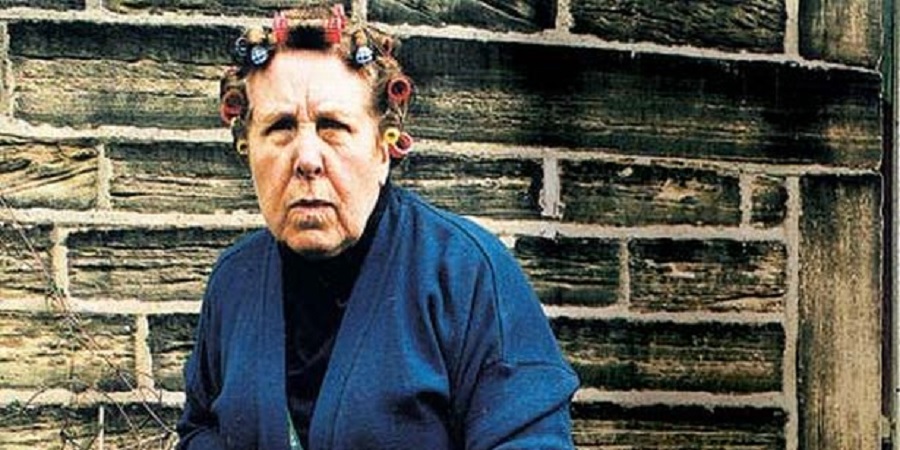
The perfumes of earth and vine,
Of meadows when the rain has gone,
Of women with their finery on,
Is in my Summer Wine.
Brian Wilde was already a household name by the time Producer/Director Sydney Lotterby approached him to play Walter C. 'Foggy' Dewhurst in the show's 1976 run, Michael Bates having been forced to leave the series due to illness (he would die in January 1978). With Foggy at the helm, the show would coalesce, and the changing character of the trio's 'Third Man' would become an occasional fixture in the programme's evolution. Whilst Foggy has proven the most enduring - though not the longest serving; that honour, in terms of episode count at least (135 to 116), belongs to Frank Thornton's Herbert "Truly" Truelove - each brought their own dynamic to the series.
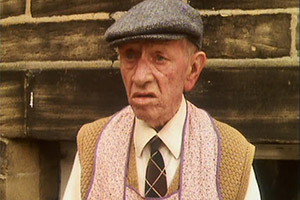
To understand Summer Wine fully, we must appreciate this is a show with three distinct eras. The early years, from 1973-1985; the golden years, from 1986-2000, when the programme operated as something of a national institution, as much a part of the nation's Sunday itinerary as roast beef and Songs Of Praise; and the post-Compo era, from 2001-2010, a period when many episodes were produced, but the series' quality, and audience figures, began to decline. Let us not over-emphasise this diminution, however; Summer's Wine's final six-part run, despite numerous cast changes, and an attempt to go back-to-basics with a new trio led by Russ Abbot, happily averaged 5 million viewers. In its own gentle way, Summer Wine is a masterclass in how to keep a sitcom moving forward.
But it isn't just a show "about old men".
"Cupid," notes Clegg, wryly, "scored a direct hit when Compo first set eyes on Nora Batty." Of course, it's an absurd notion - and one can't help feel a tinge of sympathy for Kathy Staff's wrinkle-stockinged battle-axe as she is assailed weekly by the delinquent scruff-bag. Echoing PG Wodehouse's formidable Aunt Agatha - "who eats broken bottles and wears barbed wire next to the skin" - Nora Batty, hair in curlers, her face resembling a shattered tombstone, is the blueprint for the roster of fierce womenfolk who patrol, like stout, broom-wielding prison guards, the sun-dappled cobblestones of Summer Wine's townscape. There's Ivy, who runs the cafe - in the early days, with her terrorised husband, Sid. There's Thora Hird's Edie Pegden, sister of Seymour, and wife of Wesley, the amateur mechanic who helps put together the lads' more far-fetched contraptions, and has to tiptoe across newspaper every time he goes in the house. There's Pearl, acerbic and sour, as she thwarts yet another of wayward husband Howard's impotent trysts with peroxide-blonde, bosom-heaving temptress Marina. "It's Nora," bemoans Wally Batty, "She's turned my brain to jelly."
The battle of the sexes is real; husbands are kept in line with sharp tongues, deftly brandished tea trays, and heavy puddings. And the women always - always - come out on top.
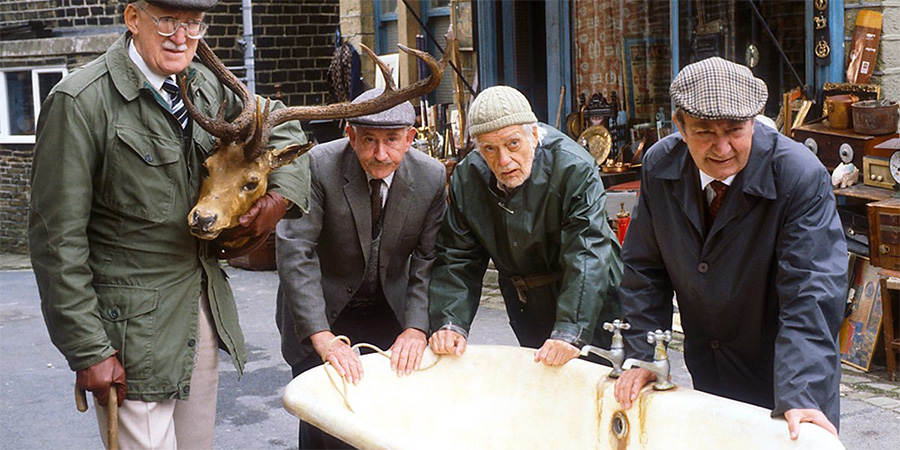
The memories I can see,
Here in my cup,
Of sweet short days,
Bitter days,
Now all drunk up.
Over the years, Summer Wine has become most readily associated with its physical comedy. Indeed, it became something of a trope; I am not the only writer to have used "Summer Wining it", or equivalent, to describe a moment of cartoonish slapstick - almost certainly involving someone or something rolling down a hill - in a script. It's an element of the series which grew over time, and critics became fond of pinpointing it as evidence of laziness. That is unfair. The sequences are always well executed, the smartly choreographed work of stunt performers more used to working on seminal dramas. But the best moments are drawn from the plots, rather than bolted onto them. The giant carrot in Greenfingers, or the trio's absurd efforts to measure Nora's feet (resulting in all three pirouetting from a rickety scaffold tower into the stream below), work better than seemingly reached-for pratfalls which pop up without proper context, or necessity, later on.
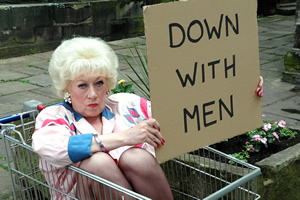
By the mid 80s, Clarke had hit upon formula. Seymour - later Foggy - devises a contraption to solve a problem. The Heath Robinson device is constructed by Wesley in his shed, then tested, with disastrous consequences. It led to some fine moments. Accompanied by echoes of the Dallas theme, the lads' oil drill, bursting a mains water pipe; Compo, in a makeshift submarine, raising his periscope, and interrupting Howard and Marina, canoodling in a rowing boat; Seymour's attempts to harness wind power by fixing a sail to Compo's bicycle - all revel in the best traditions of Ealing comedy. Bill Owen, in particular, relished the visual opportunities. "Wonderful physical clown, his movement when he does odd walks," observed writer Roy Clarke. "Bill is magical physically, there is no question about it."
If it's the physical comedy that drew viewers, particularly younger viewers, in, it's the rich, lyrical dialogue which made them stay. The show is more than happy to trade in out-and-out gags -
CLEGG: Gordon Ackroyd had this terrible smoker's cough, but it went overnight.
COMPO: How?
CLEGG: He dropped dead.
- and there is a distinct sense of whimsy.
FOGGY: (Taking in the spectacular view) Every time I come up here, the spirit soars. You can't help thinking what a wonderful place it would be to set up a machine gun. Give me a small squad of hand-picked men and I could defend this place indefinitely.
CLEGG: How long have you been a nature lover, Foggy?
But it's the quiet, contemplative moments which give the series its unique tone. "Maybe that's what paradise is," reflects Clegg, in Elegy for Fallen Wellies, "A place where the sun doesn't come up until you're ready." The rhythm of the language bleeds into the episode titles. Small Tune on a Penny Wassail; According to the Prophet Bickerdyke; Beware - the Vanilla Slice. Clarke's distinct voice underpins everything the show does.

If it's always Summer on screen, however, the atmosphere could get distinctly chillier off camera. It's safe to say Bill Owen and Brian Wilde did not always get on. Peter Sallis, a little like Clegg in the series, often found himself managing their spats. The reason for the fireworks were two-fold: Owen, who very much considered himself the star of the show, was aghast to discover that Wilde, who unusually for an actor of his stature operated without an agent, was being paid more than him. Furthermore, there were political differences: Owen, a little like Compo, was a committed Socialist; Wilde, a little like Foggy, and like Michael Bates before him, a staunch Conservative. The edge between the two men, palpable in the early seasons, but gone by the time Wilde returned in 1990 - both actors having mellowed with age - was real. Sallis managed to retain his friendship with both, though he was particularly fond of Bill Owen, next to whom he is now buried. A poignant epilogue to the series which meant so much to them both.
The taste of the life that slips,
From day to day through fingers blind,
The honey from the woman's lips,
Is in my Summer Wine.
So what is the secret of Last Of The Summer Wine's enduring appeal? I asked writer-performer Julian Dutton, who starred in his very own Summer Wine one man show, for his take:
"For me, at its best, Last Of The Summer Wine is Shakespearean, peopled with Falstaffs, Pistols, Bardolphs, Nyms, English comic types who in reaching back through the centuries deserve the appellation perennial. If you laugh at Pickwick or Falstaff, you will laugh at Foggy Dewhurst. If you laugh at Compo, you will laugh at Bottom; if you laugh at Clegg, you will laugh at Andrew Aguecheek. We may think we are following these old-timers in their ramblings around the green hills of Yorkshire, but we are actually entering the Forest of Arden, with all its crazy dreams, its lusty longings, its maniacal pursuit of fun. Roy Clarke may just have created the perfect sitcom, and as with the best of sitcoms it has the most minimal of initial pitches: People wandering around. If you're a great writer, that's all you need - and Roy Clarke is a great writer."
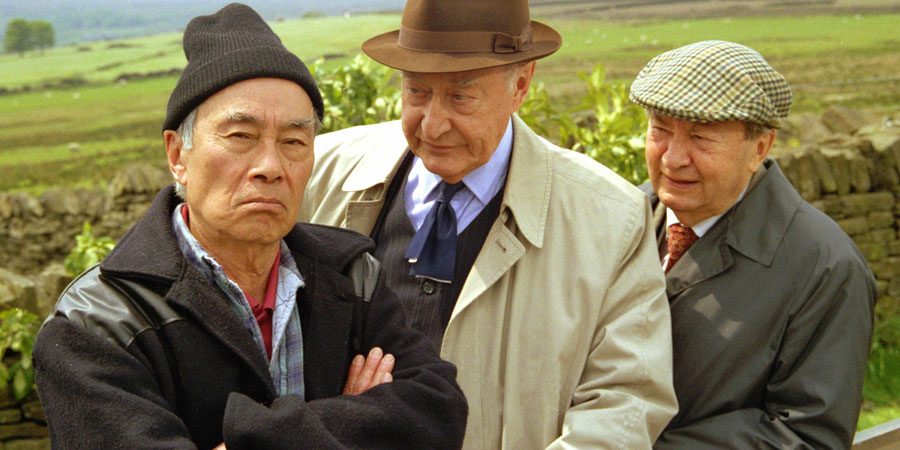
At the height of its success, the series begat a cottage industry. Tours of Holmfirth, naturally, but the location for Ivy's caff actually became a café, Compo's house a themed holiday cottage; there were souvenir plates, Summer Wine sweets, and even Danbury figurines. Roy Clarke penned a BBC One prequel - First Of The Summer Wine, featuring Peter Sallis as Norman Clegg's father - as well as a series of novels, The Summer Wine Chronicles, and a stage play. It seemed, at one point, as if the sun would never set on Last Of The Summer Wine.
But, of course, set it did. The simple passage of time - the show's greatest obsession - saw to that. Perhaps I'm a sucker for melancholia. The prat-falling and slapstick which I enjoyed as a young boy has given way to a deep appreciation of the show's language and sentiment. This is Alan Bennett, without the F-bombs and pederasty. And its message, if bittersweet, is warm, uplifting, and, in its quiet, yet uncompromising reflections on the eternal, even a little godly. It is no wonder, really, that a show so deeply concerned with time quietly passing has proven such an enduring way to quietly pass time. "I'd like to know where it all goes," says Clegg. "It doesn't seem five minutes since we were at school." It's a thought that will occur to us all.
I drink now to better days,
To grapes forever pressed and gone,
To girls whose warmth became the sun,
And gave my Summer Wine.
Where to start?
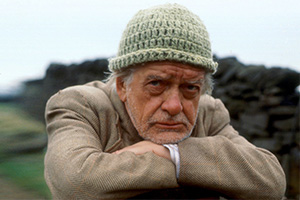
Series 11, Episode 7 - Three Men And A Mangle
First transmitted in 1989, this episode comes from the last full series to feature Michael Aldridge's Seymour Utterthwaite as the Third Man (Aldridge departed for personal reasons, but would appear briefly to smooth the reintroduction of Brian Wilde's Foggy Dewhurst in Return Of The Warrior the following year). We are now in Summer Wine's halcyon period. Alan J W Bell is at the helm, there are more filmed sequences though still plenty recorded 'live' in front of the audience (later instalments would be entirely played in) and the confidence shows. The rhythms and subplots are all here: the ladies' coffee morning, Howard and Marina's dysfunctional affair, the two Policemen, who always manage to stumble across the Lads at just the wrong moment. The episode revolves around one of my favourite comic conceits: characters being furnished with a simple prop, in this case a mangle, and the writer working out every possible comic scenario that can be generated with it. The whimsy is on point, the visual comedy is cleverly contrived - and Compo finally makes his way into Nora Batty's bedroom. Summer Wine at its best.
Help us publish more great content by becoming a BCG Supporter. You'll be backing our mission to champion, celebrate and promote British comedy in all its forms: past, present and future.
We understand times are tough, but if you believe in the power of laughter we'd be honoured to have you join us. Advertising doesn't cover our costs, so every single donation matters and is put to good use. Thank you.
Love comedy? Find out moreFirst Of The Summer Wine - Complete Collection

A prequel to the ever-popular Last Of The Summer Wine. In 1939, in a small Yorkshire village, three young friends are learning the ways of the world.
This 4-disc set contains all 13 episodes of the late 1980s sitcom: a 45 minute pilot episode, and two series of six.
First released: Sunday 5th August 2012
- Distributor: Acorn Media
- Region: 2
- Discs: 4
- Catalogue: AV8025
![]() Buy and sell old and new items
Buy and sell old and new items
Search for this product on eBay
BCG may earn commission on sales generated through the links above.
Last Of The Summer Wine - The Complete Collection

Welcome to Holmfirth, a breathtakingly beautiful village in the heart of the Holme Valley, home to our favourite idiosyncratic retired gentlemen. As they amble about the countryside, these unlikely lads are now enjoying a mischievous second childhood, devising and executing a multitude of (grey) hare-brained schemes. Which is just what you'd expect from Britain's oldest, if not wisest adolescents, and their equally eccentric fellow townspeople. Helped by a supporting band of formidable wives, hen-pecked husbands, sexually-charged mistresses, inventors, pigeon fanciers and balding lotharios, our three heroes are never far from one adventure or another. It'll end in trouble - especially when the formidable Nora Batty finds out.
Every single episode of the world's longest-running sitcom: all thirty-one series of the BBC's Last Of The Summer Wine.
First released: Monday 4th December 2017
- Distributor: Universal Pictures
- Region: 2
- Discs: 58
- Subtitles: English
- Catalogue: 8313768
![]() Buy and sell old and new items
Buy and sell old and new items
Search for this product on eBay
BCG may earn commission on sales generated through the links above.

